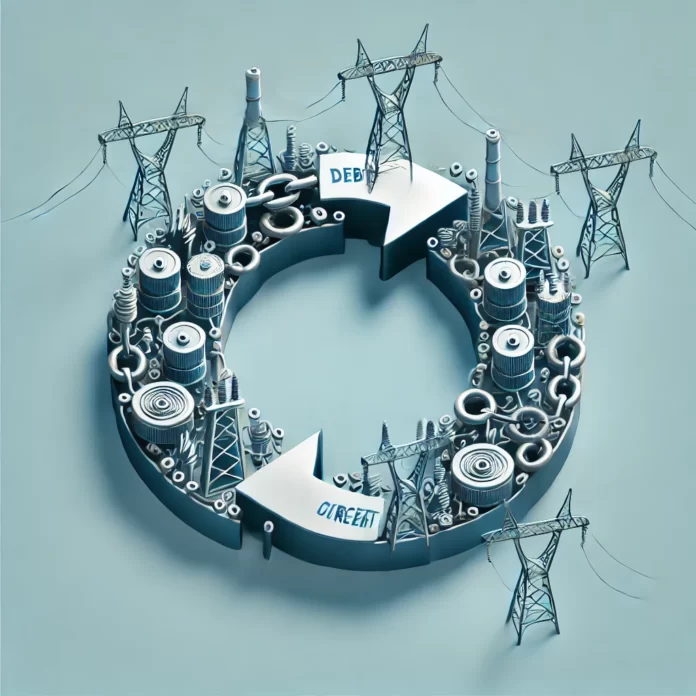The government has declined a proposal to slash electricity prices by approximately Rs4 per unit through the retirement of Rs1.8 trillion in circular debt by raising public debt. This decision underscores the limited fiscal space available for substantial consumer relief.
According to a news report, the Power Division had suggested clearing Rs1.8 trillion owed to independent power producers (IPPs) and government-owned plants by issuing Pakistan Investment Bonds (PIBs) at a fixed five-year interest rate or through Islamic bonds. This strategy would have eliminated the Rs3.80 per unit debt servicing surcharge currently imposed on electricity bills.
The surcharge, collected to pay interest on outstanding dues, particularly Rs390 billion owed to Chinese power plants, contributed Rs335 billion in revenues during the last fiscal year. However, the Finance Ministry opposed transferring the burden to the federal government’s books, citing unresolved inefficiencies in the power sector, including line losses, theft, and low recoveries.
In the first quarter of FY2024-25, grid electricity demand declined by 8%, driven by consumers shifting to rooftop solar panels to mitigate high electricity costs, which hover around Rs65-70 per unit, including taxes and surcharges.
The Finance Ministry further noted that these systemic inefficiencies have inflated circular debt, which reached Rs2.4 trillion, of which Rs1.8 trillion accrues interest. Despite law enforcement involvement, theft and recovery losses are projected to rise to Rs637 billion this fiscal year, up from Rs591 billion last year.
Efforts to renegotiate energy debt terms with China, including rescheduling repayments and shifting obligations from USD to yuan, have also faltered. Chinese companies have refused to alter agreed-upon terms related to profits and idle capacity payments, leaving Pakistan unable to finalize a memorandum of understanding (MoU) during the Chinese premier’s recent visit.
With $2 billion in energy debt repayments due this fiscal year, Pakistan continues to negotiate with local power plants under the 2002 policy to potentially reduce tariffs by Rs2-3 per unit. However, the challenge of systemic inefficiencies remains a significant barrier to any meaningful tariff reduction.




